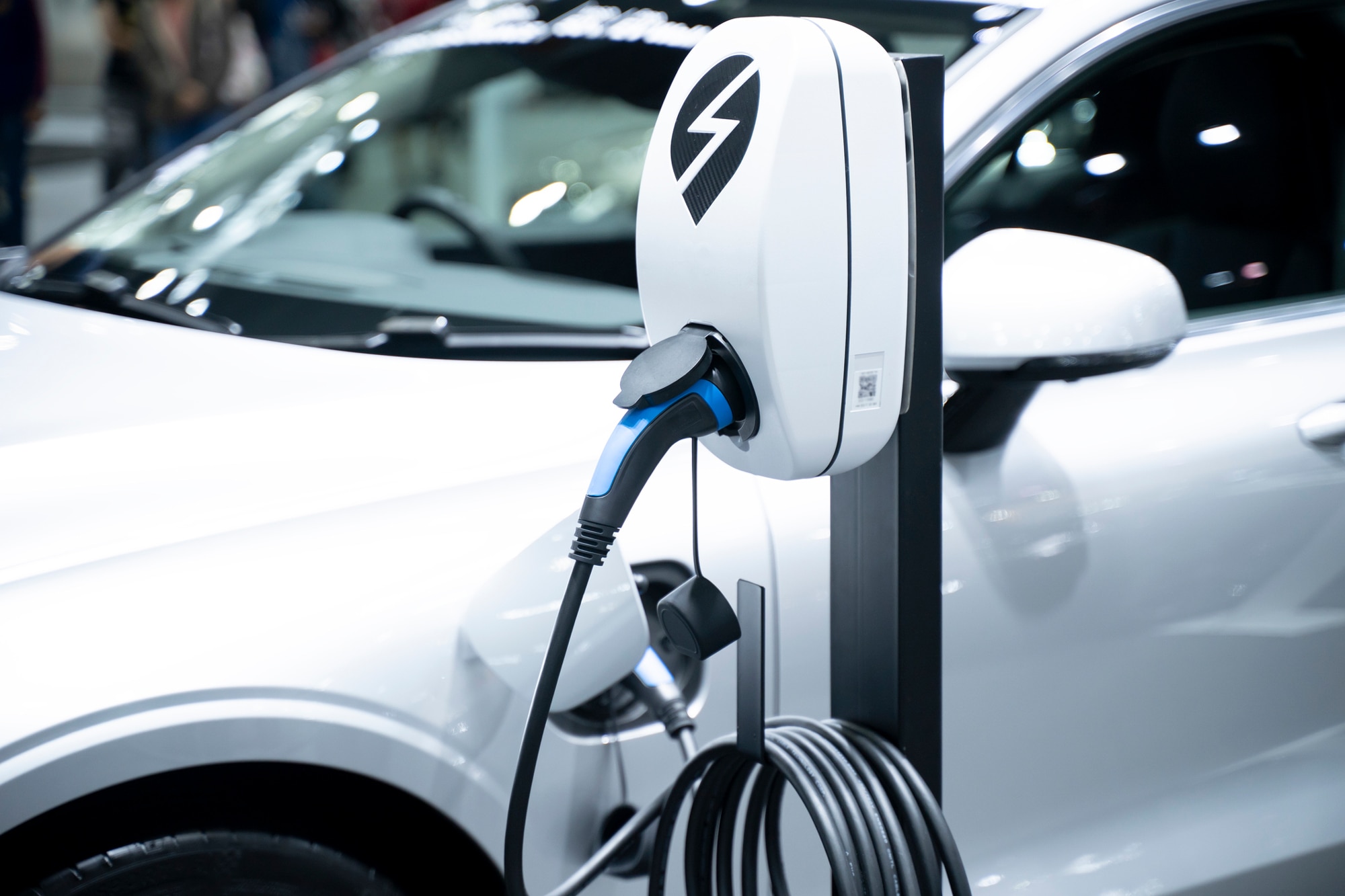How Long Does It Take to Charge an Electric Car?
Charging an EV can take more than a day or less than an hour. It all depends where you plug in.
 Getty Images
Getty Images
Updated July 27, 2023
By the time most electric vehicles finish a complete charge at a public station, you can download several movies to a tablet. By the time these cars finish charging at home, you could fly out of New York, watch maybe four of those films, and land in Rome. In a speed-obsessed world, this is the dawdling reality of the often-asked question: how long does it take to charge an electric car? But before you write off the idea of buying or leasing an electric vehicle (EV), consider that slow recharge times are offset by the convenience of charging at home — often while you sleep.
How EV charging works
Charging time depends primarily on three things: the car’s battery capacity, charging rate, as well as the station's maximum output. There are three types of charging equipment. According to the
Level 2 (L2) charging operates at 208 to 240V, and is typical at public stations, workplace locations, and the method recommended by EV manufacturers for at-home use. At a minimum 7-kW charging rate, it cuts the time to charge an electric car significantly — a depleted 60-kWh battery will take a maximum of 10 hours to recharge. Some L2 stations can charge at up to 19 kWs which can cut the charge time to as low as four hours, but the charging rate is ultimately determined by the vehicle, and it's common to find EVs that charge between 6.0 and 12.0 kWs on a 240V circuit.
Then there's Level 3, otherwise known as DC fast-charging. While Tesla vehicles use the same connector for all charging, other automakers use a specialized port for this high-power charging. While these connectors (called either CHAdeMO or CCS, depending on which standard they adhere to) are largely standard equipment on new EVs, they were sometimes optional or not offered on older models.
Unlike L1 and L2 stations, which rely on alternating current, fast-charging units use direct current which makes the time to charge an electric car much faster. Here, the car can’t always receive the station’s full power. A 2022 Ford Mustang Mach-E, for example, can handle up to 150 kWs from a 350-kW unit, whereas a 2022 Porsche Taycan — operating at double the Mach-E's voltage — can accept up to 270 kW. Charging a 60-kWh battery at a rate of 150 kWs could theoretically take less than a half-hour, but in reality, the power delivered to the vehicle fluctuates over the course of charging.
Battery limitations during charging
Some things to keep in mind: just like a phone, an EV has a finite number of charge cycles until its battery begins to significantly degrade. When this happens, the car won’t be able to go as far on a charge as it once could. Because charging at higher voltages produces such immense heat, once an EV approaches 80% capacity, the charging speed will drop dramatically to preserve the battery and protect it from damage. Often, it takes just as long for an EV to go from 80 to 100% capacity as it does from 20 to 80%. What’s more, a bank of Level 3 stations may share power. If that's the case, then as more people plug in, the less power each vehicle receives.
Large-capacity batteries generally take longer to recharge than small ones, but the speed depends more on how many kilowatts of power a car will take. Cold weather will reduce a battery's ability to store energy, which may not affect your charging time so much as range. In extreme heat, the vehicle may reduce the charging power so the battery doesn't overheat. Also, to preserve the health of the battery, it’s better to regularly allow the battery to discharge below 50% rather than constantly charging it. Excessive charging — particularly at L3 stations — can cause lasting damage. Lastly, to keep your stress level low, you’ll want to have regular access to a Level 2 charger and plan methodically for long trips. Understanding these limitations could help you avoid the range anxiety so commonly associated with EV ownership.
Written by humans.
Edited by humans.
 Clifford Atiyeh
Clifford AtiyehClifford Atiyeh is an independent writer, photographer, and creative consultant. He has reported for dozens of websites, magazines, and newspapers in his 20-year journalism career, during which he has tested more than 650 new vehicles. His automotive expertise focuses on product development, market analysis, and the litigation and legislation affecting the industry. Clifford is vice president of the New England Motor Press Association and runs a marketing consultancy.
Related articles
View more related articles